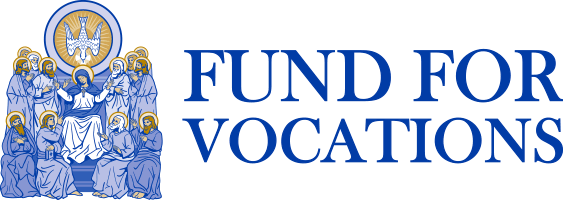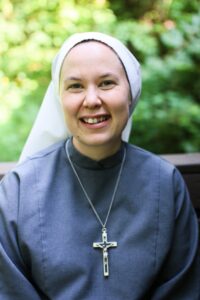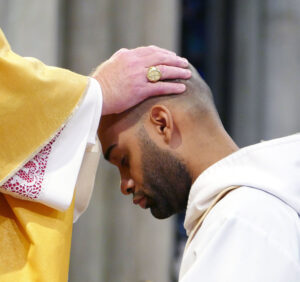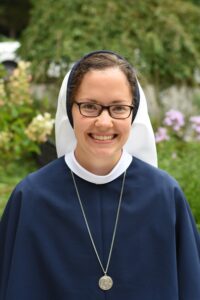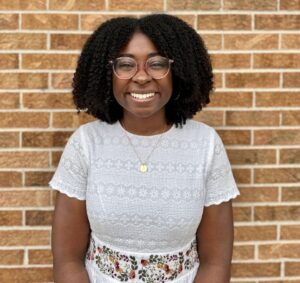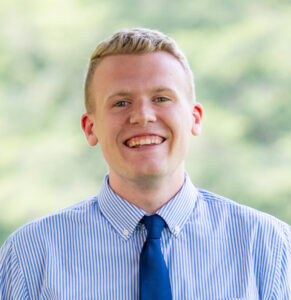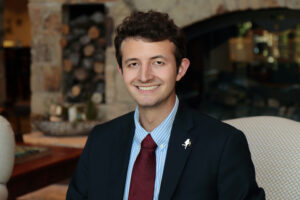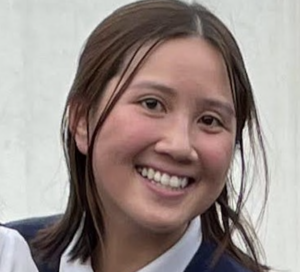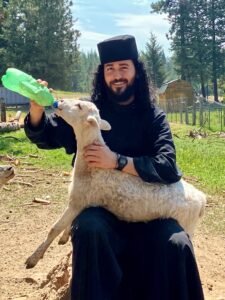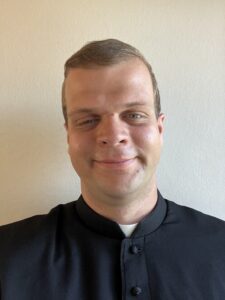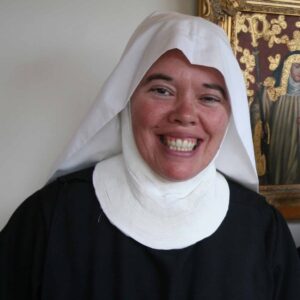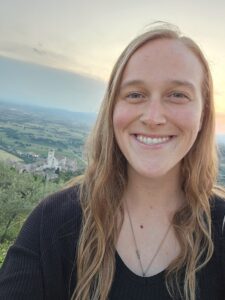“Joy is the most infallible sign of the presence of God.”
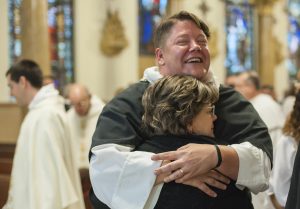 Brother Joseph Paul Albin, OP
Brother Joseph Paul Albin, OP
Dominican Friars of the Province of St. Martin de Porres
Solemn Profession on June 23, 2018
I was raised in a Catholic family, so I grew up knowing Jesus Christ and I knew priests and the sacraments from a young age. Then in my high school years, my faith grew lukewarm. I would still go to Mass, but it was mostly to keep my mom off my back! And then once I went away to college, I really even stopped going to Mass. It wasn’t so much that I became some sort of committed atheist. I was much more your typical noncommittal “none.”
The religious studies program I took at college required attending worship services of a variety of faiths, so I went to Hillel, and the Muslim Student Association . . . and the Newman Center. The Newman Center sponsored a weekend “awakening retreat” and I went and forged connections with people who were in the same place I was: fallen away but still feeling what Dorothy Day called “haunted by God.” That retreat was a turning point. And then I began one-on-one religious instruction in the theology of the Eucharist with Jill Raitt, who founded the University’s religious studies program.
As I began studying more and more about Catholicism, I was genuinely stunned to discover how completely wrong most of my assumptions had been. For example, I was deeply drawn to Eastern religions like Buddhism because I found their contemplative aspects really compelling, and I just assumed Catholicism had no such thing. Of course, the fact is that Christian mysticism and contemplative life date back to the earliest days of the faith. My own order, the Dominicans, was first founded as a community of contemplatives, more than 800 years ago. And I thought Christianity in general and Catholicism in particular was intellectually lazy and required mindless blind faith that you were not allowed to question. And then I discovered the Summa Theologiae which systematically presents and responds to every question I had ever had about the faith and then some. In hindsight, it’s actually comical, how completely misplaced all my misgivings were. Or it would be comical—except that so many young people are so similarly poorly catechized and wandering around oblivious to the richness of their own inheritance. I feel very at home now, and it turns out I was born into my true home.
Part of my studies involved an internship which meant moving into living quarters attached to the church. I started going to daily Mass because there was no excuse not to, when it’s literally in your home. And there’s also the power of dwelling in the same space where the Blessed Sacrament is reserved. I had thought I was called to do campus ministry, and I moved to New Orleans to graduate work at Loyola in that field. But ultimately, the Dominican order just felt like home. A 20th century theologian once said that “joy is the most infallible sign of the presence of God” and I just felt that joy when I went on a Dominican “come and see” vocation discernment retreat.
The great surprise for me so far has been to realize just how transformational the vows are. People hear “poverty, chastity, and obedience” and it just sounds like deprivation and misery. It is undeniably true that there is an ascetic nature to the vows, but it is also really deeply true that they orient you to a freedom in Christ that is so hard to achieve for so many of us. The things that the vows supposedly deprive you of, they are actually freeing you from.
This life has already been so fulfilling and so rich. And I constantly come to love it more and more: Christ, his people, our life together, our hope for heaven. Just having this opportunity, this life, means absolutely everything. When Christ opens up a door for you, you have to step through it. Mater Ecclesiae Fund for Vocations knocked down that barrier. You were Christ’s instrument in opening up that door. I am just so grateful.
